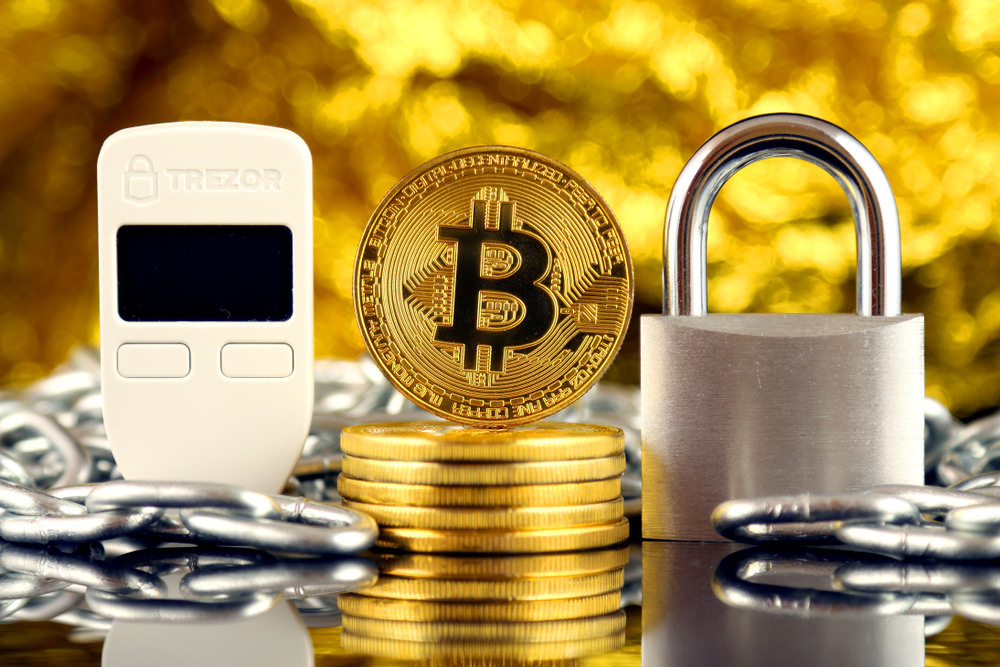-
 Operating Crypto ATMs – What Impact does BaFins Clarification have on this Business Modell?
Operating Crypto ATMs – What Impact does BaFins Clarification have on this Business Modell?
Last week, BaFin published clarifications regarding the operation of crypto ATMs via its website. In this rather short publication pointed out the supervisory authority that the public placement of ATMs at which cryptocurrencies (e.g. Bitcoin, Dash, Litecoin or Ether) can be acquired or sold may constitute proprietary trading or financial commission business in the sense […]
-
 Depository Business, Limited Depository Business, Crypto Custody Business – What are the Differences?
Depository Business, Limited Depository Business, Crypto Custody Business – What are the Differences?
The commercial custody of financial products for customers has become a highly regulated and differentiated service with respect to German supervisory banking regulations. There are not less than three different kinds of custody businesses that are subject to authorization regulated in the German Banking Act (KWG): The depository business, which is qualified as a form […]
-
 Crypto Custody vs. Depository Business – What are the Advantages of the Digital Custody of Securities?
Crypto Custody vs. Depository Business – What are the Advantages of the Digital Custody of Securities?
BaFin expressly stated in the publication on crypto custody business dated 2nd of March 2020 that it does not consider security tokens as securities in the sense of the German Securities Deposit Act under the current legal framework. This results in the fact that providers offering the custody of security tokens currently do not require […]
-
 Electronic Securities and Crypto Securities – What are the Differences?
Electronic Securities and Crypto Securities – What are the Differences?
With the introduction of the Electronic Securities Act (eWPG), the German legislator intends to create a legal alternative to paper-based securities. The corresponding draft legislation to the eWPG dated 23rd of July 2020, which for the time being shall only be applicable to bearer bonds, therefore proposes the introduction of electronic securities as an alternative […]
-
 Draft Legislation for Introduction of Electronic Securities – What will Be the Major Changes?
Draft Legislation for Introduction of Electronic Securities – What will Be the Major Changes?
The German crypto-scene has been waiting a long time for the Federal Ministry of Justice to publish its draft legislation on the introduction of electronic securities, especially since this draft was announced by the ministry for the last quarter of 2019. It was finally published last Friday. The Federal Government deems the development of regulations […]
-
 Inventory Management in Crypto Custody Service – What must be Observed when Taking Custody of Crypto Assets?
Inventory Management in Crypto Custody Service – What must be Observed when Taking Custody of Crypto Assets?
According to BaFin, over fifty potential service providers already informed the supervisory authority about their intention to apply for an authorization to conduct crypto custody services until the end of November 2020. Less than ten actual applications have been submitted to BaFin until now. Even though it can be assumed that some of those that […]
-
 Crypto Me Up – What must be Reported to BaFin by Financial Service Providers When Implementing Crypto Services?
Crypto Me Up – What must be Reported to BaFin by Financial Service Providers When Implementing Crypto Services?
Blockchain technology created a veritable crypto-hype during the last couple of years, especially in the financial industry. That said, a direct investment in crypto assets is not necessarily at the center of attention for the established financial markets participants. Blockchain technology, especially when applied to the financial industry offers a variety of innovations and solutions […]
-
 Acceptance Feature for Security Tokens – What is it and Why is it Important?
Acceptance Feature for Security Tokens – What is it and Why is it Important?
[et_pb_section fb_built=”1″ _builder_version=”4.9.10″ _module_preset=”default” global_colors_info=”{}”][et_pb_row _builder_version=”4.10.6″ _module_preset=”default” global_colors_info=”{}”][et_pb_column type=”4_4″ _builder_version=”4.10.6″ _module_preset=”default” global_colors_info=”{}”][et_pb_button button_text=”for German version click here” _builder_version=”4.10.8″ _module_preset=”default” custom_button=”on” button_text_size=”13px” button_border_width=”1px” button_border_radius=”0px” hover_enabled=”0″ global_colors_info=”{}” button_url=”/acceptance-funktion-bei-security-token-was-ist-das-und-warum-ist-sie-wichtig/” sticky_enabled=”0″][/et_pb_button][/et_pb_column][/et_pb_row][et_pb_row _builder_version=”4.9.10″ _module_preset=”default” global_colors_info=”{}”][et_pb_column type=”4_4″ _builder_version=”4.9.10″ _module_preset=”default” global_colors_info=”{}”][et_pb_text _builder_version=”4.9.10″ _module_preset=”default” global_colors_info=”{}”] Since the approval of the first security prospectus for a security token offering on the German market, the […]
-
 Buy or Build – Is the Acquisition of an Institute an Alternative to a BaFin Application?
Buy or Build – Is the Acquisition of an Institute an Alternative to a BaFin Application?
Business ideas in the blockchain sector in Germany can often not be realized without the appropriate authorization of BaFin. The obligation to obtain a BaFin authorization as a consequence of the extensive regulation of crypto assets and blockchain tokens often comes as a showstopper for startups if they cannot find a cooperation partner that offers […]
-
 Crypto Business in Germany – In Which Scenario is BaFin Competent for Foreign Crypto Providers?
Crypto Business in Germany – In Which Scenario is BaFin Competent for Foreign Crypto Providers?
Germany is taking on a special role in Europe and globally when it comes to blockchain regulation. The German Government decided last year that Germany would strive to become an internationally well-known hotspot for businesses with business models that are connected to or based on blockchain technology or cryptocurrencies. Germany tries to achieve this among […]
-
 Trading Signals for Crypto Assets – Do Signal Providers have to register with BaFin?
Trading Signals for Crypto Assets – Do Signal Providers have to register with BaFin?
The international trade of crypto assets is becoming more and more attractive to professional traders. Even though the overall market capitalization of the crypto market is still extremely low in comparison to the market capitalization of the established capital markets, the independence from exchange trading hours and the volatility that are associated with crypto assets […]
-
 Scaling Bitcoin via the Lightning Network – What Must be Considered by Crypto Businesses?
Scaling Bitcoin via the Lightning Network – What Must be Considered by Crypto Businesses?
The Lightning Network promises to solve one of Bitcoin´s biggest problems: The Scalability. Due to its decentralized operation mode, the Bitcoin network itself can process and settle between seven and twelve transactions per second. In part this is due to the relatively small block size of just one Megabyte per block in comparison to other […]
 Operating Crypto ATMs – What Impact does BaFins Clarification have on this Business Modell?
Last week, BaFin published clarifications regarding the operation of crypto ATMs via its website. In this rather short publication pointed out the supervisory authority that the public placement of ATMs at which cryptocurrencies (e.g. Bitcoin, Dash, Litecoin or Ether) can be acquired or sold may constitute proprietary trading or financial commission business in the sense […]
Operating Crypto ATMs – What Impact does BaFins Clarification have on this Business Modell?
Last week, BaFin published clarifications regarding the operation of crypto ATMs via its website. In this rather short publication pointed out the supervisory authority that the public placement of ATMs at which cryptocurrencies (e.g. Bitcoin, Dash, Litecoin or Ether) can be acquired or sold may constitute proprietary trading or financial commission business in the sense […] Depository Business, Limited Depository Business, Crypto Custody Business – What are the Differences?
The commercial custody of financial products for customers has become a highly regulated and differentiated service with respect to German supervisory banking regulations. There are not less than three different kinds of custody businesses that are subject to authorization regulated in the German Banking Act (KWG): The depository business, which is qualified as a form […]
Depository Business, Limited Depository Business, Crypto Custody Business – What are the Differences?
The commercial custody of financial products for customers has become a highly regulated and differentiated service with respect to German supervisory banking regulations. There are not less than three different kinds of custody businesses that are subject to authorization regulated in the German Banking Act (KWG): The depository business, which is qualified as a form […] Crypto Custody vs. Depository Business – What are the Advantages of the Digital Custody of Securities?
BaFin expressly stated in the publication on crypto custody business dated 2nd of March 2020 that it does not consider security tokens as securities in the sense of the German Securities Deposit Act under the current legal framework. This results in the fact that providers offering the custody of security tokens currently do not require […]
Crypto Custody vs. Depository Business – What are the Advantages of the Digital Custody of Securities?
BaFin expressly stated in the publication on crypto custody business dated 2nd of March 2020 that it does not consider security tokens as securities in the sense of the German Securities Deposit Act under the current legal framework. This results in the fact that providers offering the custody of security tokens currently do not require […] Electronic Securities and Crypto Securities – What are the Differences?
With the introduction of the Electronic Securities Act (eWPG), the German legislator intends to create a legal alternative to paper-based securities. The corresponding draft legislation to the eWPG dated 23rd of July 2020, which for the time being shall only be applicable to bearer bonds, therefore proposes the introduction of electronic securities as an alternative […]
Electronic Securities and Crypto Securities – What are the Differences?
With the introduction of the Electronic Securities Act (eWPG), the German legislator intends to create a legal alternative to paper-based securities. The corresponding draft legislation to the eWPG dated 23rd of July 2020, which for the time being shall only be applicable to bearer bonds, therefore proposes the introduction of electronic securities as an alternative […] Draft Legislation for Introduction of Electronic Securities – What will Be the Major Changes?
The German crypto-scene has been waiting a long time for the Federal Ministry of Justice to publish its draft legislation on the introduction of electronic securities, especially since this draft was announced by the ministry for the last quarter of 2019. It was finally published last Friday. The Federal Government deems the development of regulations […]
Draft Legislation for Introduction of Electronic Securities – What will Be the Major Changes?
The German crypto-scene has been waiting a long time for the Federal Ministry of Justice to publish its draft legislation on the introduction of electronic securities, especially since this draft was announced by the ministry for the last quarter of 2019. It was finally published last Friday. The Federal Government deems the development of regulations […] Inventory Management in Crypto Custody Service – What must be Observed when Taking Custody of Crypto Assets?
According to BaFin, over fifty potential service providers already informed the supervisory authority about their intention to apply for an authorization to conduct crypto custody services until the end of November 2020. Less than ten actual applications have been submitted to BaFin until now. Even though it can be assumed that some of those that […]
Inventory Management in Crypto Custody Service – What must be Observed when Taking Custody of Crypto Assets?
According to BaFin, over fifty potential service providers already informed the supervisory authority about their intention to apply for an authorization to conduct crypto custody services until the end of November 2020. Less than ten actual applications have been submitted to BaFin until now. Even though it can be assumed that some of those that […] Crypto Me Up – What must be Reported to BaFin by Financial Service Providers When Implementing Crypto Services?
Blockchain technology created a veritable crypto-hype during the last couple of years, especially in the financial industry. That said, a direct investment in crypto assets is not necessarily at the center of attention for the established financial markets participants. Blockchain technology, especially when applied to the financial industry offers a variety of innovations and solutions […]
Crypto Me Up – What must be Reported to BaFin by Financial Service Providers When Implementing Crypto Services?
Blockchain technology created a veritable crypto-hype during the last couple of years, especially in the financial industry. That said, a direct investment in crypto assets is not necessarily at the center of attention for the established financial markets participants. Blockchain technology, especially when applied to the financial industry offers a variety of innovations and solutions […] Acceptance Feature for Security Tokens – What is it and Why is it Important?
[et_pb_section fb_built=”1″ _builder_version=”4.9.10″ _module_preset=”default” global_colors_info=”{}”][et_pb_row _builder_version=”4.10.6″ _module_preset=”default” global_colors_info=”{}”][et_pb_column type=”4_4″ _builder_version=”4.10.6″ _module_preset=”default” global_colors_info=”{}”][et_pb_button button_text=”for German version click here” _builder_version=”4.10.8″ _module_preset=”default” custom_button=”on” button_text_size=”13px” button_border_width=”1px” button_border_radius=”0px” hover_enabled=”0″ global_colors_info=”{}” button_url=”/acceptance-funktion-bei-security-token-was-ist-das-und-warum-ist-sie-wichtig/” sticky_enabled=”0″][/et_pb_button][/et_pb_column][/et_pb_row][et_pb_row _builder_version=”4.9.10″ _module_preset=”default” global_colors_info=”{}”][et_pb_column type=”4_4″ _builder_version=”4.9.10″ _module_preset=”default” global_colors_info=”{}”][et_pb_text _builder_version=”4.9.10″ _module_preset=”default” global_colors_info=”{}”] Since the approval of the first security prospectus for a security token offering on the German market, the […]
Acceptance Feature for Security Tokens – What is it and Why is it Important?
[et_pb_section fb_built=”1″ _builder_version=”4.9.10″ _module_preset=”default” global_colors_info=”{}”][et_pb_row _builder_version=”4.10.6″ _module_preset=”default” global_colors_info=”{}”][et_pb_column type=”4_4″ _builder_version=”4.10.6″ _module_preset=”default” global_colors_info=”{}”][et_pb_button button_text=”for German version click here” _builder_version=”4.10.8″ _module_preset=”default” custom_button=”on” button_text_size=”13px” button_border_width=”1px” button_border_radius=”0px” hover_enabled=”0″ global_colors_info=”{}” button_url=”/acceptance-funktion-bei-security-token-was-ist-das-und-warum-ist-sie-wichtig/” sticky_enabled=”0″][/et_pb_button][/et_pb_column][/et_pb_row][et_pb_row _builder_version=”4.9.10″ _module_preset=”default” global_colors_info=”{}”][et_pb_column type=”4_4″ _builder_version=”4.9.10″ _module_preset=”default” global_colors_info=”{}”][et_pb_text _builder_version=”4.9.10″ _module_preset=”default” global_colors_info=”{}”] Since the approval of the first security prospectus for a security token offering on the German market, the […] Buy or Build – Is the Acquisition of an Institute an Alternative to a BaFin Application?
Business ideas in the blockchain sector in Germany can often not be realized without the appropriate authorization of BaFin. The obligation to obtain a BaFin authorization as a consequence of the extensive regulation of crypto assets and blockchain tokens often comes as a showstopper for startups if they cannot find a cooperation partner that offers […]
Buy or Build – Is the Acquisition of an Institute an Alternative to a BaFin Application?
Business ideas in the blockchain sector in Germany can often not be realized without the appropriate authorization of BaFin. The obligation to obtain a BaFin authorization as a consequence of the extensive regulation of crypto assets and blockchain tokens often comes as a showstopper for startups if they cannot find a cooperation partner that offers […] Crypto Business in Germany – In Which Scenario is BaFin Competent for Foreign Crypto Providers?
Germany is taking on a special role in Europe and globally when it comes to blockchain regulation. The German Government decided last year that Germany would strive to become an internationally well-known hotspot for businesses with business models that are connected to or based on blockchain technology or cryptocurrencies. Germany tries to achieve this among […]
Crypto Business in Germany – In Which Scenario is BaFin Competent for Foreign Crypto Providers?
Germany is taking on a special role in Europe and globally when it comes to blockchain regulation. The German Government decided last year that Germany would strive to become an internationally well-known hotspot for businesses with business models that are connected to or based on blockchain technology or cryptocurrencies. Germany tries to achieve this among […] Trading Signals for Crypto Assets – Do Signal Providers have to register with BaFin?
The international trade of crypto assets is becoming more and more attractive to professional traders. Even though the overall market capitalization of the crypto market is still extremely low in comparison to the market capitalization of the established capital markets, the independence from exchange trading hours and the volatility that are associated with crypto assets […]
Trading Signals for Crypto Assets – Do Signal Providers have to register with BaFin?
The international trade of crypto assets is becoming more and more attractive to professional traders. Even though the overall market capitalization of the crypto market is still extremely low in comparison to the market capitalization of the established capital markets, the independence from exchange trading hours and the volatility that are associated with crypto assets […] Scaling Bitcoin via the Lightning Network – What Must be Considered by Crypto Businesses?
The Lightning Network promises to solve one of Bitcoin´s biggest problems: The Scalability. Due to its decentralized operation mode, the Bitcoin network itself can process and settle between seven and twelve transactions per second. In part this is due to the relatively small block size of just one Megabyte per block in comparison to other […]
Scaling Bitcoin via the Lightning Network – What Must be Considered by Crypto Businesses?
The Lightning Network promises to solve one of Bitcoin´s biggest problems: The Scalability. Due to its decentralized operation mode, the Bitcoin network itself can process and settle between seven and twelve transactions per second. In part this is due to the relatively small block size of just one Megabyte per block in comparison to other […]


